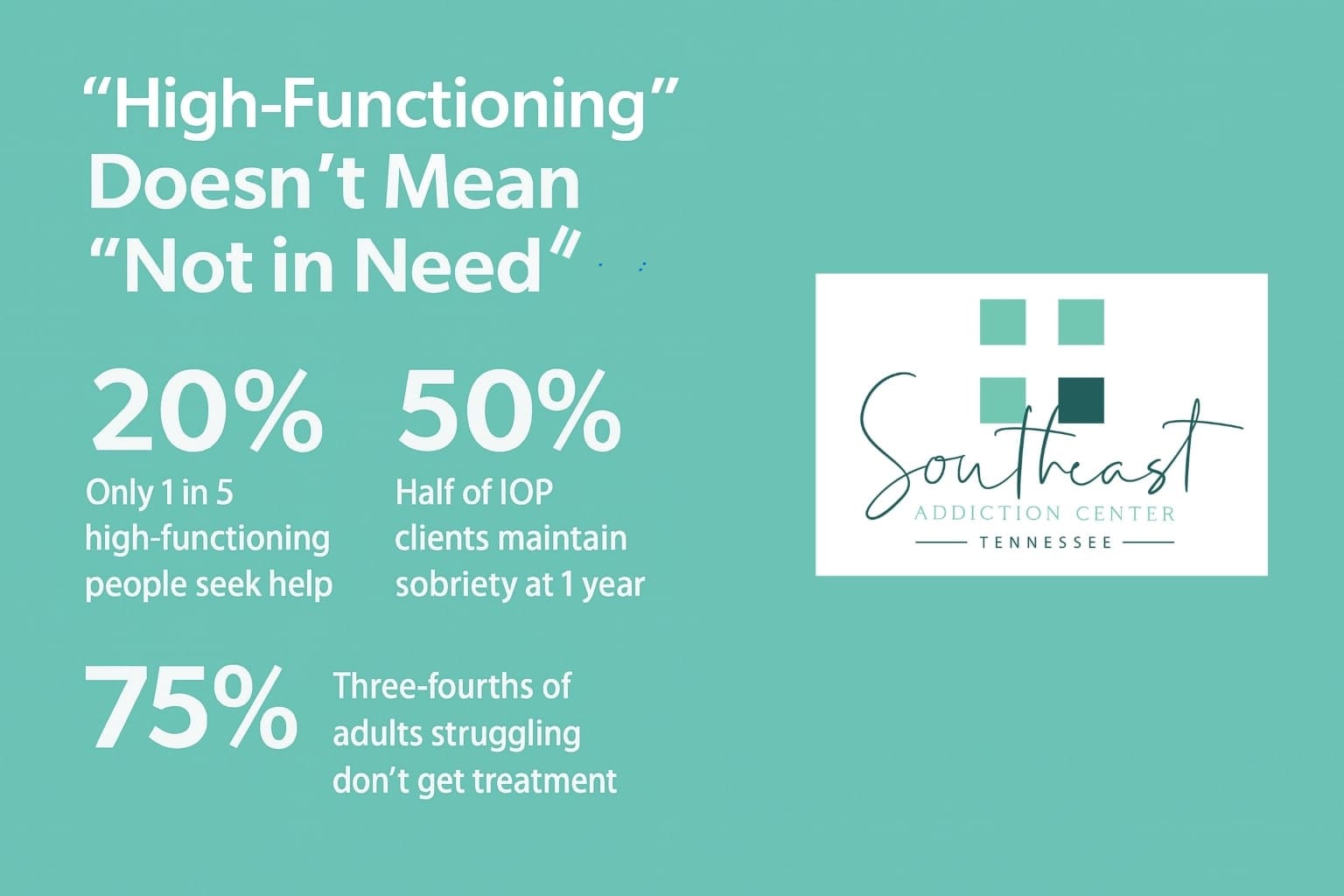I had the house. The handshake. The high-functioning habits. But I was quietly falling apart.
You wouldn’t have guessed it. That’s the scary part. I showed up for meetings, I laughed at dinner parties, I remembered birthdays. But every day, I was clocking in and out of a private war with myself. I didn’t think I needed help—until the mask got too heavy to wear.
If that sounds familiar, an intensive outpatient program in Nashville might be exactly what you need—especially if you’re still “functioning,” but deep down, not okay.
I Was Winning on the Outside. Drowning on the Inside.
My calendar was full. So was my liquor cabinet. I wasn’t blacking out. I wasn’t crashing cars. I was keeping it
just under the line of obvious concern. That’s what made it worse.
People praised my discipline, my career drive, my social ease. What they didn’t know was I couldn’t fall asleep without “just one drink,” couldn’t make it through lunch without thinking about the next one, couldn’t look at myself in the mirror without the creeping sense that I was faking everything.
And maybe I was. I looked like a leader. I felt like a liar.
High-Functioning Doesn’t Mean “Not Struggling”
Here’s the thing: high-functioning addiction isn’t less dangerous. It’s just harder to catch. Harder to admit. Harder to treat—because denial isn’t just external. It’s internalized. We start believing our own performance. That if no one’s worried, there’s no problem.
But I was always bargaining:
If I only drink at night, it’s fine.
If I keep my job, it’s not really addiction.
If I stop next week, I don’t need help now.
What finally made me crack wasn’t a big event. It was a tiny moment. Sitting alone in a
Nashville hotel bathroom, scrolling through my inbox with a drink in my hand, feeling nothing. Not even guilt. Just… empty.
That’s when I knew. Something had to give.
IOP Gave Me the One Thing I Couldn’t Fake
I’d tried therapy once. Canceled by week three. I read the books. Nodded at the podcasts. But I never let anyone
in.
Joining an intensive outpatient program in Nashville changed that. For the first time, I couldn’t hide behind my success. There were no “status points” in group therapy. Just truth.
IOP worked for me because it didn’t require me to drop my life. I could keep working. Keep parenting. But three times a week, I had to show up—fully. Not just physically. Emotionally. Honestly.
We weren’t telling stories to impress. We were telling the truth to heal.

The Day I Told the Truth (and Didn’t Die)
One afternoon in IOP, the facilitator looked at me and said, “You’re performing recovery. Try telling the truth instead.”
I snapped. “What does that even mean?”
“It means stop trying to be good at healing. Just be in it.”
That night, I admitted to the group that I still kept a bottle in my glove compartment. No one flinched. No one judged. One guy nodded and said, “I kept mine in the trunk.”
That’s when I learned that honesty wasn’t something to fear. It was the doorway out.
Recovery Didn’t Strip Me of Myself—It Gave Me Back My Sanity
I thought getting sober would make me boring. That I’d lose my edge, my confidence, my creativity. Instead, I got clarity. Peace. Actual mornings. Real rest. The ability to look people in the eye without wondering if they could smell the night before.
I’m not here to say it was easy. But it was necessary.
And I didn’t have to do it alone. IOP gave me structure, tools, people who understood. Not once did I feel like a project or a statistic. I felt like a person being slowly rebuilt—honestly this time.
If You’re High-Functioning but Miserable, You’re Not Alone
The scariest part about addiction at this level is that it lets you keep going. It keeps you “productive.” Until it doesn’t. Until the cracks show in your relationships, your sleep, your soul.
You don’t have to hit bottom. You just have to stop pretending the slow collapse isn’t real.
If you’re wondering whether IOP might be right for you, consider this: if you’ve thought about quitting more than once but never followed through… you’re already in the conversation.
Frequently Asked Questions About IOP for High-Functioning Adults
What is an intensive outpatient program?
An
intensive outpatient program (IOP) is a structured form of treatment that allows you to live at home while attending therapy multiple times a week. It’s less intensive than residential rehab but more involved than standard outpatient therapy.
Learn more about how our Nashville IOP works here.
Is IOP only for people with “serious” addiction?
No. IOP is for anyone whose substance use is disrupting their life—even if it’s not obvious from the outside. Many high-functioning professionals benefit from IOP because it fits their lifestyle without minimizing their struggle.
Can I work while attending IOP?
Yes. Most IOPs, including ours at Southeast Addiction TN, are designed to accommodate work schedules. Sessions are typically held in the morning or evening to allow flexibility.
What’s the difference between IOP and inpatient rehab?
Inpatient rehab requires you to live on-site 24/7, while IOP lets you live at home. It’s a great fit for people who need serious support but can’t or don’t want to step away from daily responsibilities.
How do I know if I need this?
If you’re using substances to cope, lying to people you love, or waking up every day with a knot in your stomach—even though everything “looks fine”—IOP might be the next right step.
📞 You Don’t Have to Fall Apart to Ask for Help
If you’re tired of keeping up the act, we’re here. Call
(615) 326-6449 or visit to learn more about our
intensive outpatient program services in Nashville, TN.
